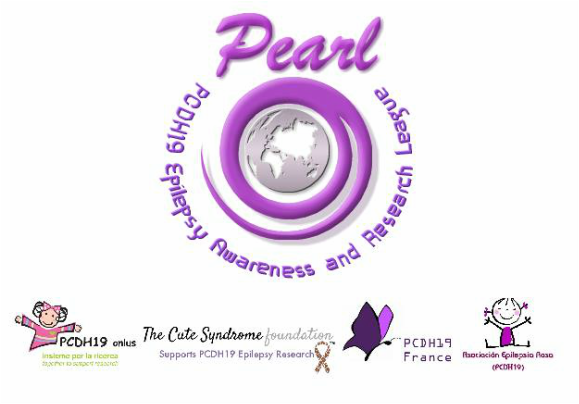PCDH19 Epilepsy
There are a relatively small number of cases of PCDH19 Epilepsy currently confirmed by genetic diagnosis in the world. However, PCDH19 mutations is suspected to be much more widespread, affecting as many as 15,000-30,000 patients in the US. Mutations in the PCDH19 gene have been associated with the occurrence of epilepsy, a spectrum of developmental delays, and behavioral issues that occur almost exclusively in girls and women--causing a genetic disorder known as PCDH19 Epilepsy (also called PCDH19 Female Epilepsy and formerly, EFMR).
PCDH19 Epilepsy has a spectrum of symptoms. Almost all of the girls affected by PCDH19 mutations exhibit seizures of many types, but the most typical characteristic of PCDH19 Epilepsy is the tendency of the seizures to cluster and interfere with breathing (causing cyanotic spells). Some of the girls affected with PCDH19 Epilepsy have cognitive delays, much of the research indicates that about two-thirds of the girls have Intellectual Delay (ID) ranging from mild to moderate. Additionally, about 40% of the girls with PCDH19 Epilepsy are on the autism spectrum. Many of those with PCDH19 also exhibit behavioral and psychological problems including aggression, obsessive-compulsive disorder, and, in some cases, schizophrenia. PCDH19 may also contribute hypotonia.
There are several boys who have been identified as having mosaic forms of this disorder who also experience epilepsy.
PCDH19 refers to a gene located on the X-chromosome. The disorder associated with mutations on this gene has been known by several names: PCDH19 Female Epilepsy or PCDH19 Related Epilepsy, Juberg-Hellman Syndrome, and EFMR, or Epilepsy in Females with Mental Retardation (a name that is both antiquated and inaccurate). PCDH19 Epilepsy can arise as a single case in a family, just through an accident in cell replication, or it can be inherited. The inheritance pattern is very unusual in that men that carry the gene mutation on their only X-chromosome are typically unaffected, whereas approximately 90% of women who have the mutation on one of their two X-chromosomes, exhibit symptoms.
PCDH19 Epilepsy has a spectrum of symptoms. Almost all of the girls affected by PCDH19 mutations exhibit seizures of many types, but the most typical characteristic of PCDH19 Epilepsy is the tendency of the seizures to cluster and interfere with breathing (causing cyanotic spells). Some of the girls affected with PCDH19 Epilepsy have cognitive delays, much of the research indicates that about two-thirds of the girls have Intellectual Delay (ID) ranging from mild to moderate. Additionally, about 40% of the girls with PCDH19 Epilepsy are on the autism spectrum. Many of those with PCDH19 also exhibit behavioral and psychological problems including aggression, obsessive-compulsive disorder, and, in some cases, schizophrenia. PCDH19 may also contribute hypotonia.
There are several boys who have been identified as having mosaic forms of this disorder who also experience epilepsy.
PCDH19 refers to a gene located on the X-chromosome. The disorder associated with mutations on this gene has been known by several names: PCDH19 Female Epilepsy or PCDH19 Related Epilepsy, Juberg-Hellman Syndrome, and EFMR, or Epilepsy in Females with Mental Retardation (a name that is both antiquated and inaccurate). PCDH19 Epilepsy can arise as a single case in a family, just through an accident in cell replication, or it can be inherited. The inheritance pattern is very unusual in that men that carry the gene mutation on their only X-chromosome are typically unaffected, whereas approximately 90% of women who have the mutation on one of their two X-chromosomes, exhibit symptoms.
International PCDH19 Organizations

The Cute Syndrome also works with the international PCDH19 community to raise money for and fund PCDH19 Epilepsy research. We are proud members of the International PCDH19 partnership: PEARL--PCDH19 Epilepsy Awareness and Research League together with Insieme per la Ricerca PCDH19 (Italy), PCDH19 France, Epilepsia Rosa Association (Spain).
PCDH19 Information
PCDH19 Resources
PCDH19 IPS Cell Research
PCDH19 Zebrafish Research
Photo used under Creative Commons from rawpixel.com

